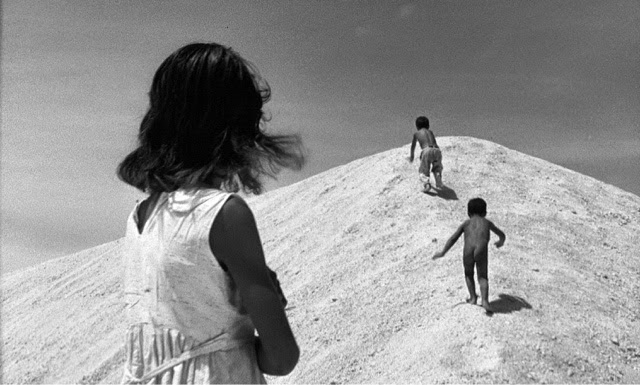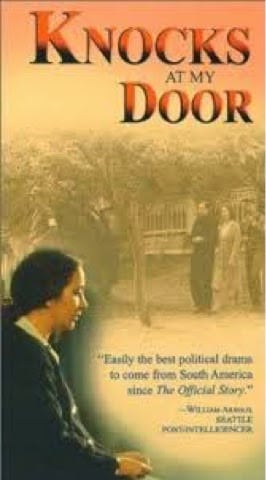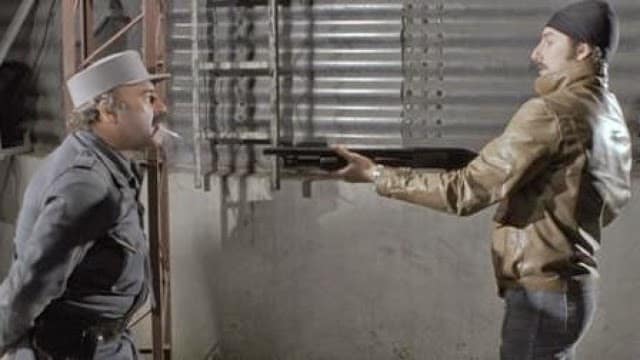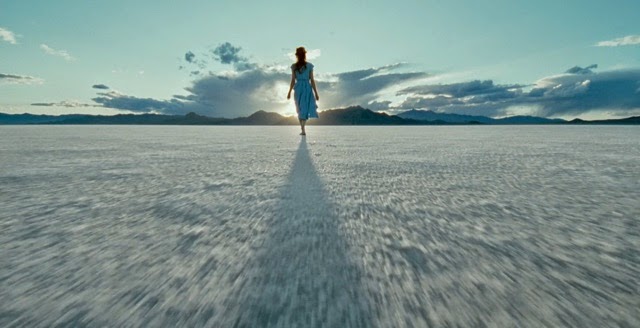
Araya (Margot Benacerraf, 1959)
March 22, 2010
Knocks at my Door (Alejandro Saderman, 1994)
March 22, 2010Funny Dirty Little War is similar to Macunaïma in a lot of ways. Although separated by more than a decade and issued from two different countries, they both try to provoke social change by using satire. Talking about Brazil, Robert Stam presents an interesting confrontation between the left and the right in that country at the end of the 1960s:
“With the coup d’État, leftist film production was interrupted: universities and cineclubs were raided, copies of Soviet silent classics such as Mother and Potemkin were seized, and Cinema Novo was forced to face up to a political disaster. The new political conjuncture forced a reconceptualization of goals and strategies. As one response, a number of filmmakers performed tortured autopsies of the debacle, in films whose veiled or explicit theme was the coup itself or the problems of the left […]”.
In Funny Dirty Little War, that ideological clash stemming from the Cold War is the object of ridicule. The mayor of a small Argentinean town is accused of being a socialist and must defend City Hall from the authorities determined to arrest him. The satire extends to both political ideologies as the left and the right are constantly mocked. Informed of the mayor’s plight, a group of young socialists ponders what to do to help him. They decide to write a letter in which they make their discontent known. Unconvinced by this futile effort, the police chase the young revolutionaries away while the students vow to return. One of the most interesting aspects of the film is how both clans spurt out Perón’s name, as if both were sure to adhere to the present government’s agenda. In the beginning of the 1980s Argentina has just lived through a difficult period. The military dictatorships which succeeded each other between 1976 and 1983 were the most violent in its history. In having both factions tout Peronist slogans, Olivera destroys any differences that could exist between them and establishes both as Argentineans, killing their own for political ideologies. Such a discourse can only intend to unify his country that had been recently divided by political greed.
One of the biggest differences between Funny Dirty Little War and Macunaïma is the former’s realism. Comparatively, Macunaïma’s magical realism, which suits perfectly its mythological construction, contrasts with Funny Dirty Little War’s poignant use of realism as a reminder that all the happenings in the story could very well take place in real life, like a sugar-coated bitter pill. The most effective example of realism in the film is the murder of the innocent bystander inside City Hall. Suddenly, the severity of the situation becomes clear; death is a possibility. In that, the movie is close to The Second Civil War (Joe Dante, 1997). It also resembles Wag the Dog (Barry Levinson, 1997) where a film producer, played by Dustin Hoffman, is killed for knowing too much about the conspiracy he helped create.
More info on IMDB
- Black Panther: A Perspective - March 20, 2018
- Seven Pounds (Gabriele Muccino, 2008) - May 5, 2015
- Honeymoon (Leigh Janiak, 2014) - January 30, 2015



